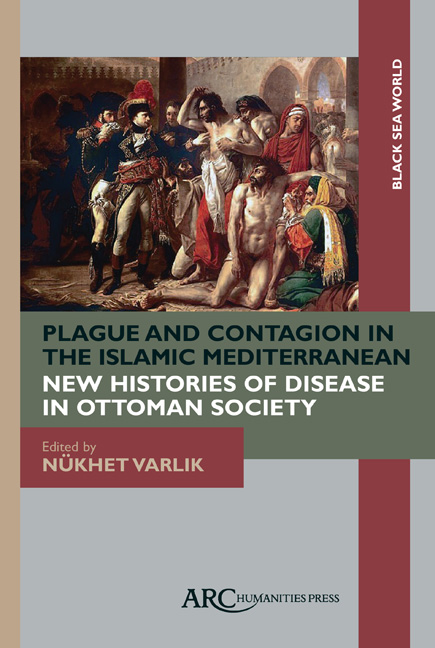“Oriental Plague” or Epidemiological Orientalism? Revisiting the Plague Episteme of the Early Modern Mediterranean
Published online by Cambridge University Press: 25 January 2021
Summary
I saw the Ottoman's fortress—austere, and darkly impending high over the vale of the Danube—historic Belgrade. I had come, as it were, to the end of this wheel-going Europe, and now my eyes would see the Splendour and Havoc of The East.”
With these words, the nineteenth-century English historian and travel writer Alexander William Kinglake opens his famous Eothen, or, Traces of Travel Brought Home from the East. When the young Cambridge-educated Kinglake began his journey to the Ottoman Empire in 1834, he could not have known that his account of this journey would become a classic in Oriental travel writings. Indeed, the travelogue was an immediately successful publication, going through numerous editions as well as translations into German, French, and Italian. It is generally acknowledged that the book's fame is owed not to the accuracy of Kinglake's narrative or the eruditeness of his literary style; rather, it is admired for its commanding ability to convey intriguing impressions and share engaging experiences, as though Kinglake was actually conversing with his target audience: European armchair travelers to the Orient.
Kinglake knew well how to speak to the sensibilities of his audience. He also knew how to season his narrative to offer his readers a taste of the exotic. After all, he was taking them on an adventure that demanded courage, determination, and a touch of imagination. Right from the outset of his travelogue, as he is about to cross the Ottoman border and step into uncharted territory, he prepares his reader for the dramatic transition from Europe to the East. “The two frontier towns,” he writes, “are less than a gun-shot apart, yet their people hold no communion … [they] are as much asunder as though there were fifty broad provinces that lay in the path between them … [no] one had ever gone down to look upon the stranger race dwelling under the walls of that opposite castle.” Kinglake sketches the difference between what was familiar and what was about to be encountered—an unfamiliar lifestyle, veiled women, but most importantly a different healthscape. In unambiguous terms, he draws the line: “It is the Plague, and the dread of the Plague, that divide the one people from the other.”
- Type
- Chapter
- Information
- Plague and Contagion in the Islamic Mediterranean , pp. 57 - 88Publisher: Amsterdam University PressPrint publication year: 2017
- 2
- Cited by



